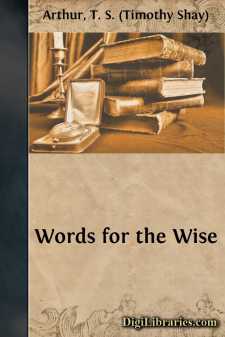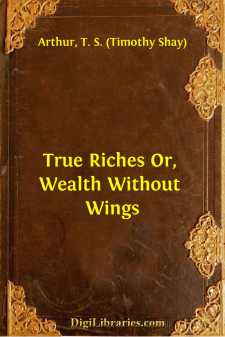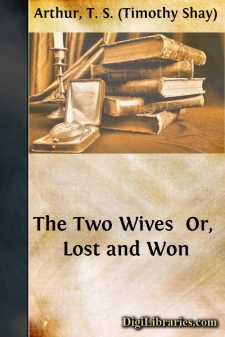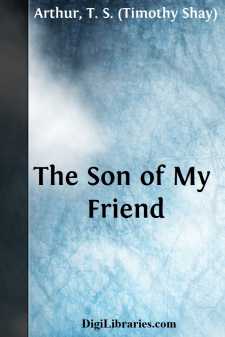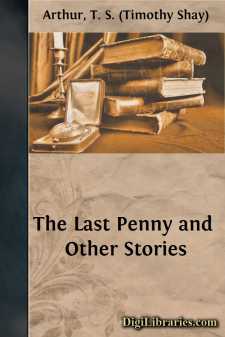Categories
- Antiques & Collectibles 13
- Architecture 36
- Art 48
- Bibles 22
- Biography & Autobiography 813
- Body, Mind & Spirit 142
- Business & Economics 28
- Children's Books 17
- Children's Fiction 14
- Computers 4
- Cooking 94
- Crafts & Hobbies 4
- Drama 346
- Education 46
- Family & Relationships 57
- Fiction 11829
- Games 19
- Gardening 17
- Health & Fitness 34
- History 1377
- House & Home 1
- Humor 147
- Juvenile Fiction 1873
- Juvenile Nonfiction 202
- Language Arts & Disciplines 88
- Law 16
- Literary Collections 686
- Literary Criticism 179
- Mathematics 13
- Medical 41
- Music 40
- Nature 179
- Non-Classifiable 1768
- Performing Arts 7
- Periodicals 1453
- Philosophy 64
- Photography 2
- Poetry 896
- Political Science 203
- Psychology 42
- Reference 154
- Religion 513
- Science 126
- Self-Help 84
- Social Science 81
- Sports & Recreation 34
- Study Aids 3
- Technology & Engineering 59
- Transportation 23
- Travel 463
- True Crime 29
T. S. (Timothy Shay) Arthur
Timothy Shay Arthur (1809-1885) was an American author known for his numerous works of fiction and non-fiction that promoted temperance and moral values. His most famous work, "Ten Nights in a Bar-Room and What I Saw There" (1854), became a pivotal piece of literature in the temperance movement, depicting the devastating effects of alcohol on individuals and families. Arthur's writings, characterized by their didactic tone and emphasis on moral lessons, made a significant impact on 19th-century American society.
Author's Books:
Sort by:
WHAT SHALL WE BUILD? our children were playing on the sea-shore. They had gathered bright pebbles and beautiful shells, and written their names in the pure, white sand; but at last, tired of their sport, they were about going home, when one of them, as they came to a pile of stones, cried out: "Oh! let us build a fort; and we will call that ship away out there, an enemy's vessel, and make...
more...
AUNT MARY. A LADY sat alone in her own apartment one clear evening, when the silver stars were out, and the moon shone pure as the spirit of peace upon the rebellious earth. How lovely was every outward thing! How beautiful is God's creation! The window curtains were drawn close, and the only light in the cheerful room, was given by a night-lamp that was burning on the mantel-piece. The occupant,...
more...
THE POOR DEBTOR. "THERE is one honest man in the world, I am happy to say," remarked a rich merchant, named Petron, to a friend who happened to call in upon him. "Is there, indeed! I am glad to find you have made a discovery of the fact. Who is the individual entitled to the honourable distinction?" "You know Moale, the tailor?" "Yes. Poor fellow! he's been under the...
more...
A LESSON OF PATIENCE. I WAS very unhappy, from a variety of causes, definable and undefinable. My chambermaid had been cross for a week, and, by talking to my cook, had made her dissatisfied with her place. The mother of five little children, I felt that I had a weight of care and responsibility greater than I could support. I was unequal to the task. My spirits fell under its bare contemplation. Then...
more...
"What troubles you, William?" said Mrs. Aiken, speaking in a tone of kind concern to her husband, who sat silent and moody, with his eyes now fixed upon the floor, and now following the forms of his plainly-clad children as they sported, full of health and spirits, about the room. It was evening, and Mr. Aiken, a man who earned his bread by the sweat of his brow, had, a little while before,...
more...
CHAPTER I. "A fair day's business. A very fair day's business," said Leonard Jasper, as he closed a small account-book, over which he had been poring, pencil in hand, for some ten minutes. The tone in which he spoke expressed more than ordinary gratification. "To what do the sales amount?" asked a young man, clerk to the dealer, approaching his principal as he spoke. "To...
more...
CHAPTER I. THIS happened a very few years after, my marriage, and is one of those feeling incidents in life that we never forget. My husband's income was moderate, and we found it necessary to deny ourselves many little articles of ornament and luxury, to the end that there might be no serious abatement in the comforts of life. In furnishing our house, we had been obliged to content ourselves...
more...
CHAPTER I. "YOU are not going out, John?" said Mrs. Wilkinson, looking up from the work she had just taken into her hands. There was a smile on her lips; but her eyes told, plainly enough, that a cloud was upon her heart. Mrs. Wilkinson was sitting by a small work-table, in a neatly furnished room. It was evening, and a shaded lamp burned upon the table. Mr. Wilkinson, who had been reading, was...
more...
"I'VE been thinking," said I, speaking to my husband, who stood drawing on his gloves. "Have you?" he answered; "then give me the benefit of your thoughts." "That we shall have to give a party. You know we've accepted a number of invitations this winter, and it's but right that we should contribute our share of social entertainment." "I have thought as...
more...
THE LAST PENNY. THOMAS CLAIRE, a son of St. Crispin, was a clever sort of a man; though not very well off in the world. He was industrious, but, as his abilities were small, his reward was proportioned thereto. His skill went but little beyond half-soles, heel-taps, and patches. Those who, willing to encourage Thomas, ventured to order from him a new pair of boots or shoes, never repeated the order....
more...




